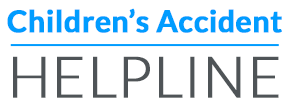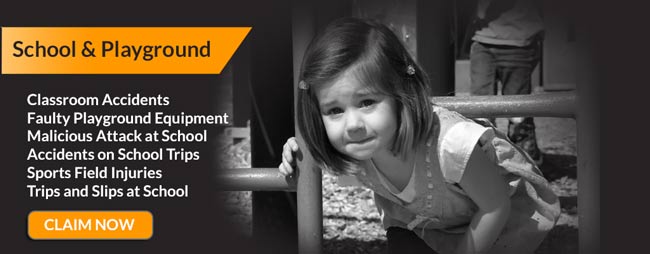Child Brain Injury Compensation
Child Brain Injury Compensation
When a child is involved in a serious accident all of the parent's energies are understandably focussed on ensuring the child receives the optimum care and treatment for recovery. In these circumstances the reason for the accident and whether there was anyone legally at fault is not always looked into as first priority and any compensation for the child's accident is not taken further. A claim such as this is of course of paramount importance because monies retrieved can be used in the recovery and care of the child.
This is especially important with injuries which lead to long term disabilities such as child brain injury. There is of course the initial treatment needed to deal with the physical issues but there is also the fact that a brain injury may affect your child's life surreptitiously throughout their lives both with social interaction, education, and basic functioning.
It should be noted that it is in the long term severe injuries that rightly lead to significant pay-outs which can at the very least assist you in caring for your child and ensuring they still have the same opportunities as they would have had if they had not have had the accident. Find out more about the child compensation claim process
Below is a case study of a child who suffered brain injury after an accident where the instigator was legally at fault.
Case study - Child brain Injury compensation
At the age of four, a boy was involved in a serious road accident as a pedestrian. He was hit by a lorry and suffered a significant head injury and a fracture to his leg. The head injury left the boy with brain damage, which affected his comprehension and personality. After the road traffic accident he required constant supervision and additional support at school. Many of the people who encountered the boy didn't understand that his needs were the result of the trauma to his brain and he was frequently labelled as simply a badly behaved child; this was difficult for the boy as well as those close to him. However, both his family and his teachers struggled to provide the help he needed and while specialist input was certainly warranted, neither his family nor his school could fund the assistance he required.
His family believed the lorry driver may have been at fault and wondered whether their son might be entitled to compensation, which if successfully paid could cover the costs of the extra care he required.
Even though the police advised that the accident was unavoidable, the boy's family sought legal advice to pursue a brain injury claim with the help of a personal injury specialist. Although those under 18 years of age cannot pursue compensation for childhood accidents, their parents or another responsible adult can bring an injury claim on their behalf, as happened in this case.
The driver was at fault
Their lawyer requested the available evidence regarding the circumstances surrounding the accident and from the recording device within the lorry there was suggestion that the driver may have been breaking the speed limit. When a reconstruction report of the accident was obtained, this was indeed shown to be the case and while the boy had run into the road, the driver could have stopped had he obeyed the speed limit. Court proceedings were initiated, but shortly before the hearing the driver's insurers admitted that the man behind the wheel had been at fault.
The courts access child medical reports
However, child compensation cases always require the input from a court to make sure that the child receives a fair payment. Reports on the boy's injuries from doctors and other health professionals involved in his care were obtained. The reports highlighted the extent of his disabilities and the impact they were having on his life; this information was essential for the court to approve the compensation payment that the personal injury lawyer had agreed with the boy's family.
At the hearing, the judge was presented with the medical evidence and with the help of a barrister was able to verify the interim compensation payment requested. This money was requested to enable the boy's family and school to arrange the specialist support needed in the short-term to allow him the best outcome possible.
£3million pay-out to meet ongoing needs
Further multi-disciplinary evidence was gathered as the boy developed to assess the long-term impacts of his brain injury to ensure that his continuing needs could be met. The family's personal injury solicitor compared the boy's injuries with those sustained in other similar child accident cases to ascertain the likely payment that the boy could expect. This child accident claims case was concluded when a settlement of £3million was approved by the court, which would make sure that the boy would always have financial security to meet his ongoing needs.
The Children's Accident Helpline specialises in child injury claims. We offer advice and guidance around this sometimes complex but essential area. Call us on 0800 433 7690 to speak to one of our professional consultants now or fill in our online claim form
Child Road Accidents
According to The Royal Society for the Prevention of Accidents (RoSPA) more than a million young people under the age of 15 experience an accident at home each year that requires treatment at an accident and emergency department. However, thousands more injuries are sustained away from the home, including school accidents and those in the playground, as well as on the UK's roads. Figures available from the Health and Social Care Information Centre and the Department for Transport offer an insight into the accidental injuries children sustained in 2013. With the help of these child accident statistics, as a parent or anyone else who cares for children, you can appreciate which steps are most important to take when it comes to accident prevention.
Across the UK in 2013, by far the most common reason for children to receive care from a consultant for a medical problem caused by an external factor, into which accidents can be grouped, were falls. The data covering the period from July 2012 to June 2013 showed that just under a quarter of all children seen had suffered a fall. These falls were typically not from a great height, but frequently occurred on the level due to a trip, emphasising the importance of simple child safety at home measures to remove any fall hazards. While falls from furniture were still common among the under fives, older children often fell in a playground accident.
After falls, other causes of child accidents each contributed to less than 5% of cases. However, the fact that the causes of some childhood injuries were unspecified means that if the details of these incidents had been known, a more accurate picture of less common injuries would be available. Inhalation or swallowing a foreign body, which may cause choking or asphyxia, was most common in children between the age of one and four years. However, being struck by an object, which may happen if items aren't stored carefully or a child is unsupervised, is still a relatively frequent cause of injury, as is a crush injury, which may occur in child car accidents or in more minor incidents such as a trapped finger. Children injured while cycling in accidents that didn't involve a collision with a vehicle made up around 1.5% of cases. Finally, poisoning, whether it was caused by medications or another agent, accounted for well under 1% of cases, as did scalding incidents. Despite the fact that RoSPA provides information on child accident prevention relating to issues such as drowning, fires and glass-related cuts, only the top ten causes of injury were recorded in this data, so figures for these were not available.
In an article in 2012 by Making the Link, which works with policymakers to reduce the risk of childhood accidents, it highlighted that transport-related accidents were a major cause of unintentional injury in children. As the data set did not consider road traffic accidents involving children, data from the Department for Transport covering the same period indicates that there were 15,920 injuries to children on UK roads. This was a fall of 12% from the previous year and there was a similar reduction in the number of children seriously injured or killed on the roads.
Comparing the data available for the causes of accidental injury in different areas, North West England, London and the West Midlands had the greatest numbers of children receiving consultant care for their injuries. However, this may relate to the size of the population in these areas rather than children in these regions being exposed to more hazards. While falls were the most common cause of injury in all regions, in the West Midlands these only accounted for 18.5% of cases, while in the South West of England these made up 28% of incidents. Injuries relating to a strike, crushing and a foreign body were also significantly lower in the West Midlands than in other areas, while cases of child poisoning were at around 2% in the North West and South West. However, these differences may again relate to poor documentation of injury causes rather than true differences in hazard exposure.
By taking note of these findings, the accidental injury children sustain can be reduced if measures are put in place to make our homes, schools, recreational facilities and roads safer.





